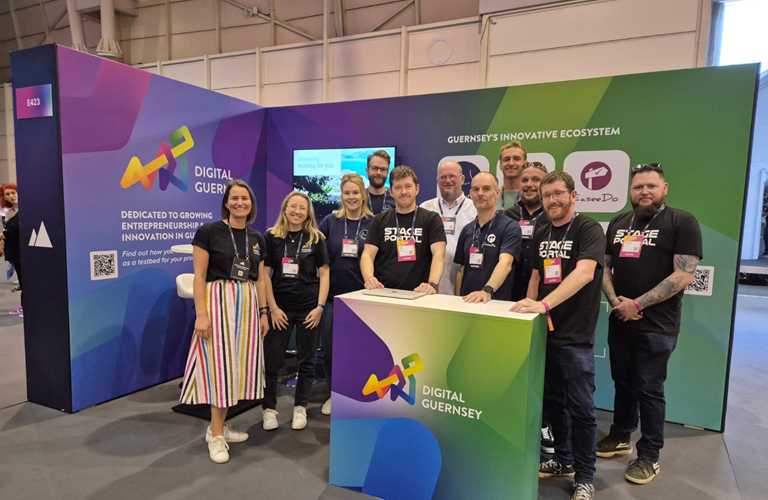Pitch Perfect! How To Secure Investors For Your Business Venture
We discuss accessing finance with Blenheim Chalcot and TEKEX at Global Entrepreneurship Week 2020 - Scroll down to watch the event
Guernsey's number of start-ups is rapidly expanding, as the team at Startup Hub Guernsey have seen over its first 7 months. While transitioning from start-up to scale-up, a critical factor for a growing a business is the quality and flexibility of available funds. However, it can be difficult to know where to start, what you might need for your business and how to ask for it.
In the fourth event of Global Entrepreneurship Week, we hear from Nick Gregg, Head of Investments at Blenheim Chalcot and Ed Prow, Founder of local investment group TEKEX about being pitch ready and how to understand and access finance.
So you've got an idea, and now you need to document it! A lot of founders can get this wrong, and as most ventures are started in teams, you need to ensure you have put in place the basic foundations ahead of fundraising. Is your team aligned? Do you have structures in place if founders leave? Founders agreements, advisors agreements, consultancy agreements, this is the time to get these on paper. Seedlegals, seedsummit.org has some good templates you can use that you can adapt to the Guernsey economy.
Next, we need to think about the key messages investors will want to hear, and how best to explain your personal journey to this point. Do you have a significant story behind your business's beginning or an objective that is worth sharing? Build your businesses profile with competitions, events or articles that draw your customers to engage and re-engage with your brand. Capitalise on this connection with your customer base to show promise of momentum through the investment process. All of these things will inevitably need to be in your pitch deck to present to your possible investors. To see more about what you should include in your pitch deck, check out the Blenheim Chalcot's slide deck from the presentation here.
There are multiple options to take when looking for investors for your startup business including direct investment, incubators and accelerators. When you're working on your initial structuring, how will you identify and target the investors you may need?
As with many interviews, you need to build a database of potential investors you may want to approach. Are there any specialists that could benefit your startup? For example, investors in female founders or deep tech funds, or angel lists. Research your targeted investors on how they can support you in the future, the projects they support and their corporate network. Nick says do your homework!! This can really help with your selected investors choosing to invest in you. Make sure to hone your pitch before approaching your favourite investors with colleagues, family friends and potential customers.
You can see all the slides from Blenheim Chalcot's presentation here
Ed followed with his story on how he built his three ventures, Potting Shed, Tag Team and Tekex. Sharing his experience of setting up his businesses and seeking funding, the most critical factor being the foundation principles he built his businesses upon, a level of transparency and collaboration. These are useful principles that can be applied to any startup to spark an open and honest approach to business and connect to your target audience through trust.
As most founders will tell you later on in their business journey, success can usually depend on a trio of hard work, serendipity and the lessons learnt along the way. Ed directly applied these learnings to his third venture Tekex, started as a small meet up in a local pub, to the online meetups that they are today.
"We had to turn from a group of designers and tech-heads to fundraisers."
Ed Prow founder of TEKEX
A dynamic Q&A provided us with some great takeaways about accessing finance for your startup.
- How much do I give up to investors in the early stages? Around 15% of equity is given away in the first investors round. After three rounds you may have given 50%. A trend lately is raising 2-3% the cost of legal documents being less and the availability of ‘rolling rounds’ that last for longer.
- Should the states have a pot available to fund startups? Ed thinks so! He believes we need to support local SMEs which is what he built Tekex for. "We have to create conditions to encourage entrepreneurs."
- How do you prove you have traction as an early-stage business? Nick suggests agreeing with the investor what benchmarks you will meet when the business gets traction. The second thing being within the investment process, make sure you are flagging bits of positive news! Keep the momentum going to show there are elements that are always improving throughout the investment process.
- If you're approached, what due diligence should you take on investors? Do your basic homework in their follow-through rate, you want them with you for the long run, do you think they’re credible to introduce you to other investors in the next round? Try talking to the CEO’s of the company’s these investors have invested in/ exited and get a view for if you will be able to work with them.


